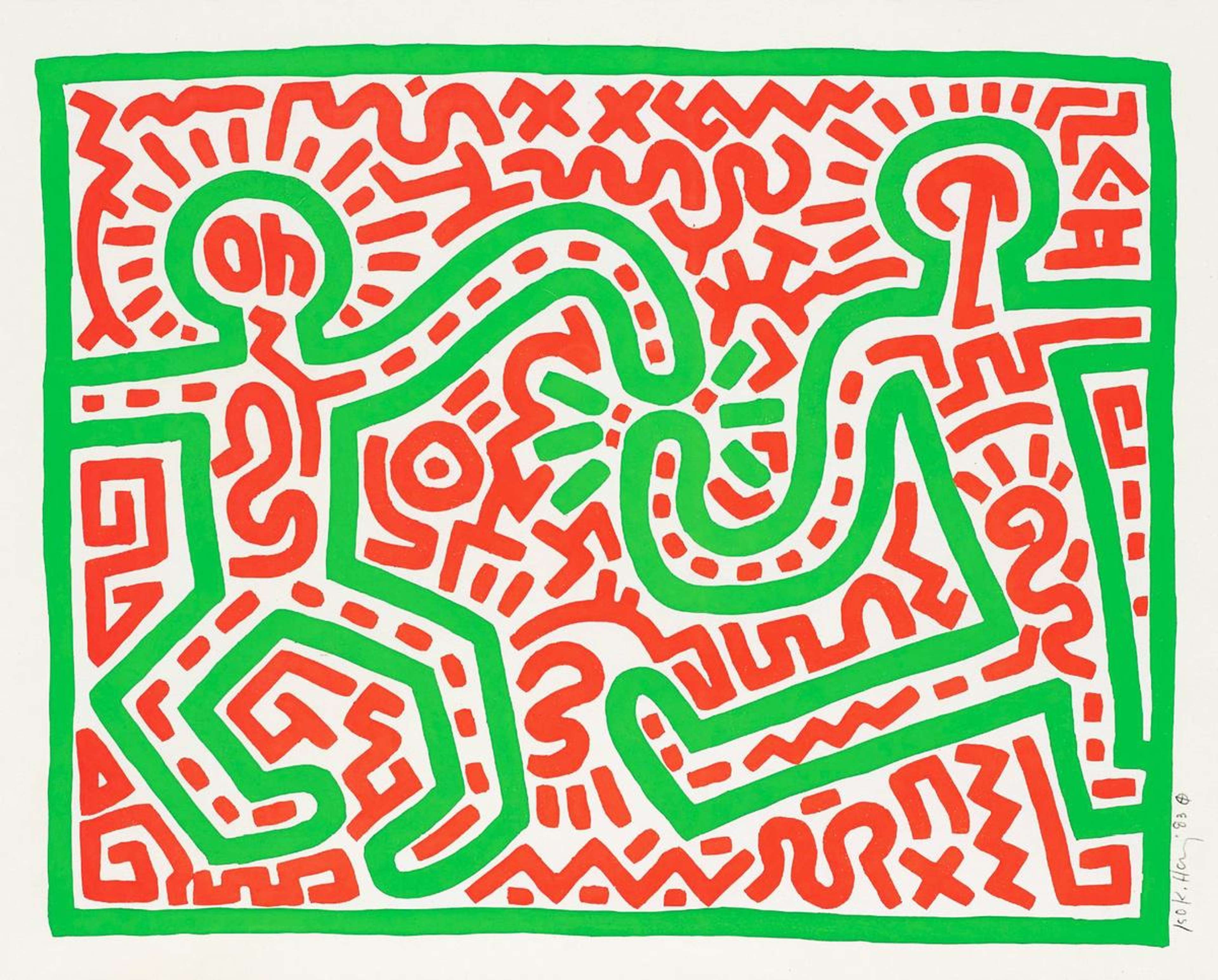
Untitled 1983
Untitled 1983
Signed Print
Keith Haring
£23,000-£35,000
$45,000-$70,000 Value Indicator
$40,000-$60,000 Value Indicator
¥220,000-¥330,000 Value Indicator
€26,000-€40,000 Value Indicator
$240,000-$360,000 Value Indicator
¥4,780,000-¥7,270,000 Value Indicator
$30,000-$45,000 Value Indicator
There aren't enough data points on this work for a comprehensive result. Please speak to a specialist by making an enquiry.
61 x 76cm, Edition of 60, Woodcut
Auction Results

Track auction value trend
Meaning & Analysis
This signed woodcut from 1983 is a limited edition of 60 by Keith Haring. Depicted exclusively in bright red and green, Untitled shows an image of two dancing figures against a backdrop of linear patterns. Depicted exclusively in bright red and green, this print is an example of Haring’s iconic linear style, bursting with energy and joy.
This print anticipates Haring’s later works that combine the figurative with the abstract like his Growing series (1988) and Chocolate Buddha series (1989). Showing the two central figures touching one another’s arms, a burst of energy forms the central point of the composition. From this central point, the composition fills out with geometric and squiggly red lines that are shown both inside and outside the two figures. Untitled 1983 therefore has a distinctly flat surface in its all-over composition.
Haring was concerned with the idea of the democratisation of art and used his positive visual language as a form of activism to raise awareness around important socio-political issues of the time. Haring uses thick bold lines and flat saturated colours to produce an image that bursts with energy and vigour. The dancing figures clearly convey a sense of joy and community in a way that reflected the artist’s love of hip hop emerging in New York City in the 1980s.
